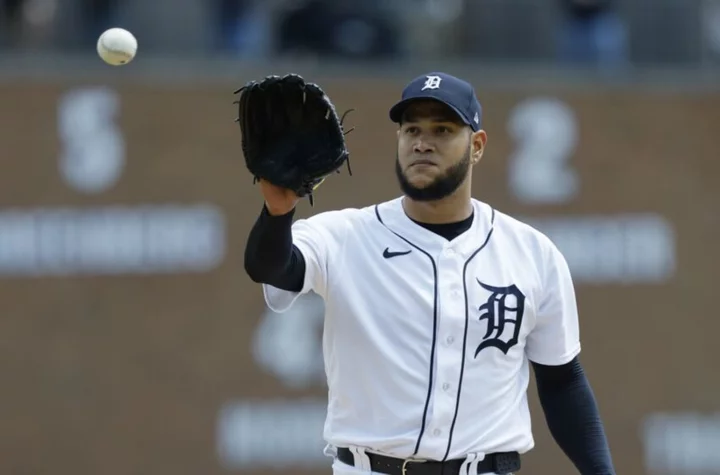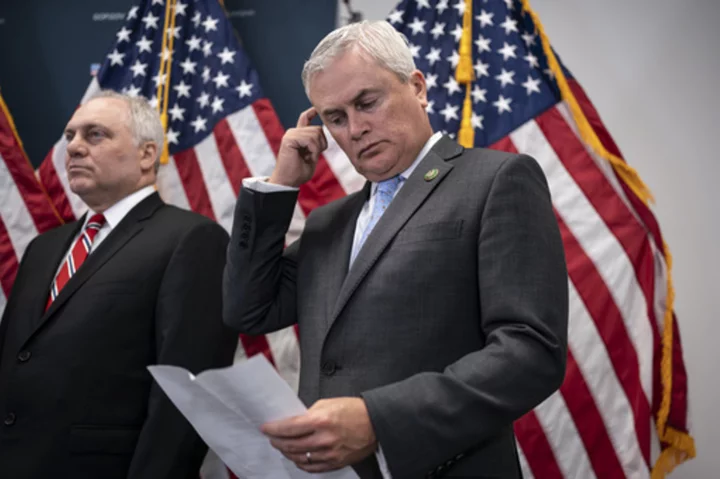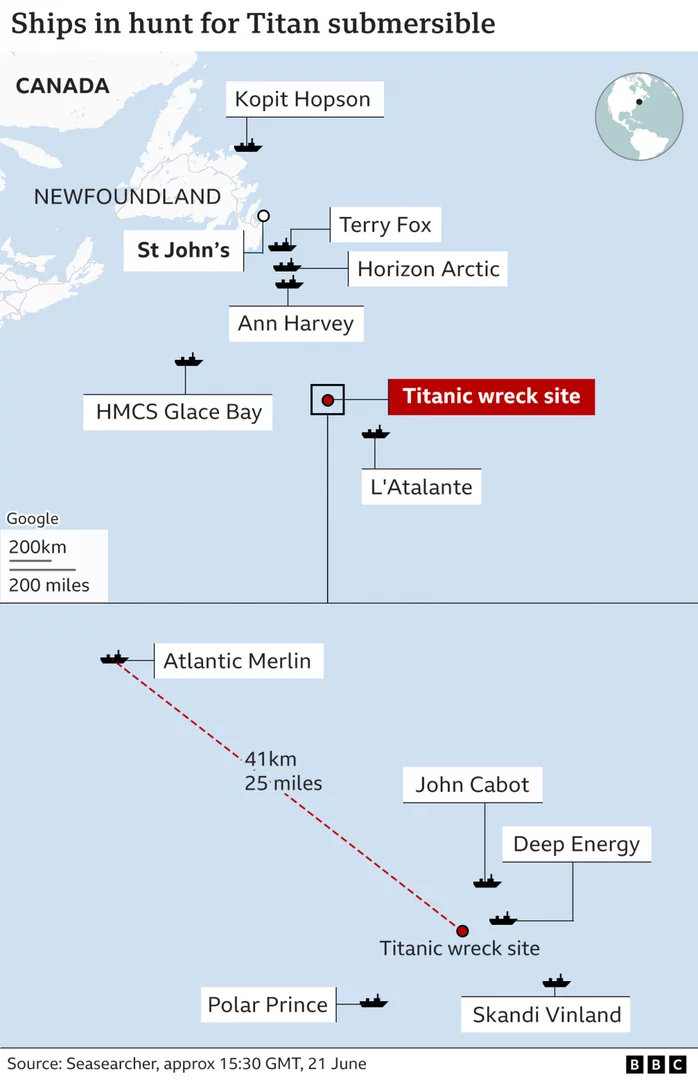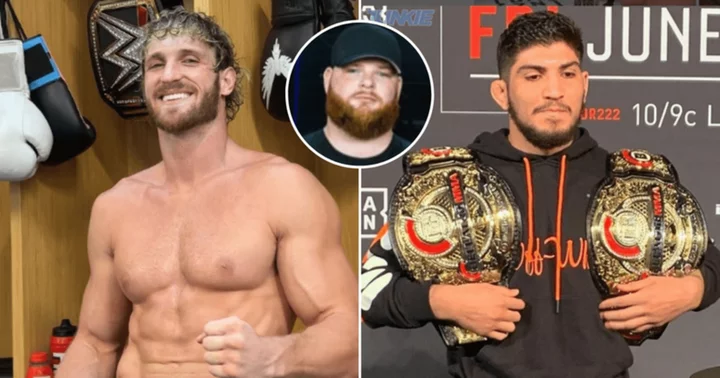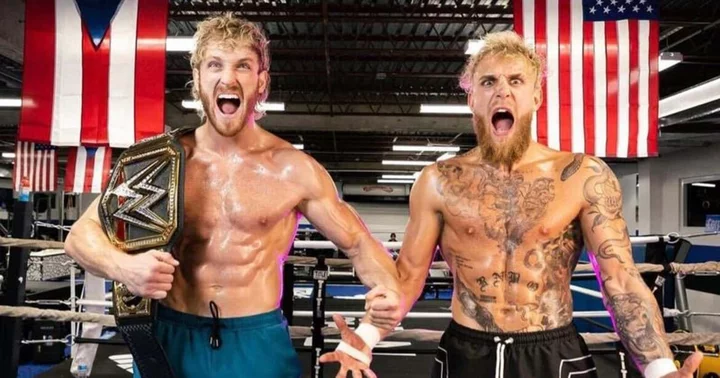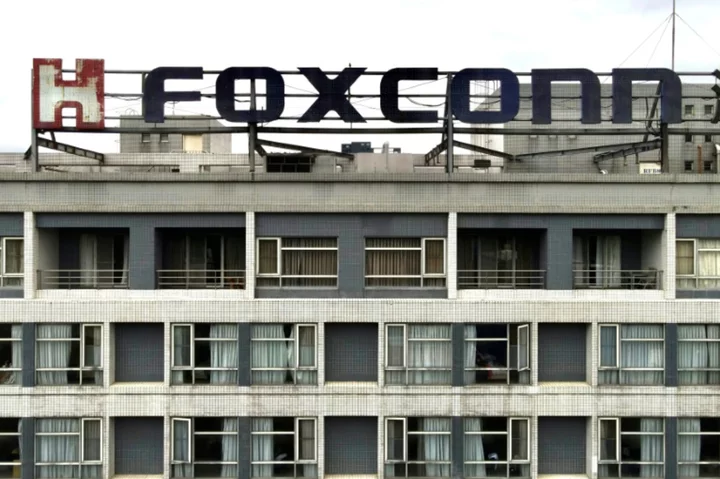The Tigers failed to trade Eduardo Rodriguez at the MLB trade deadline. As the story continues to unravel, who is to blame?
In the 11th hour of trade deadline conversations, the Tigers and Dodgers agreed to a deal that would have sent Eduardo Rodriguez to Los Angeles for a package of prospects. The move seemed like a win-win for both sides. Rodriguez would get to pitch for a contender and likely opt out of his contract at the end of the season, thus picking his next destination. Meanwhile, Detroit could cash in on a surprising Rodriguez season.
Yet, it wasn't meant to be. Recruiting tactics by Rodriguez's former teammates in Boston fell upon deaf ears.
"I texted him, I don't care what you do," Mookie Betts said. "If you come, cool. If you don't, cool. Our relationship is not based off that. We'll always be boys. I didn't give a damn what he did."
Mookie sure knows how to make a pitcher feel wanted, jeez.
Rodriguez has insisted that he wanted to remain closer to family, which usually resides in Miami. They like spending time in Detroit. It's tough to blame him for that, especially since Rodriguez took a few months off last season to address family concerns. Clearly, it's something he takes very seriously.
The Tigers had access to Rodriguez's contract. They knew of his no-trade list. They should also know their player. So, with that in mind, who's really to blame for all this disfunction?
Tigers to blame for failed Eduardo Rodriguez trade: Eduardo Rodriguez
We have to start with the obvious. In articles recently published by The Athletic and the Detroit Free-Press, it's clear Scott Harris and the Tigers front office had some level of expectation that Rodriguez would waive his no-trade clause and accept a deal to Los Angeles. This was loosely based on conversations they had with the player and his representation.
Now, it's definitely possible they misinterpreted those conversations. Harris is a first-year general manager, after all, but he's been through the deadline many times before with the San Francisco Giants.
Per Rosenthal, Rodriguez's agent tried to add more money on the tail end of E-Rod's contract in exchange for accepting the trade in the first place. That sum was somewhere in the $20 million range, per reports. By the sound of it, Rodriguez was willing to play for the Dodgers if his interests were met, and those interests were at least partially financially-motivated.
Yes, Rodriguez values his family life, but there was a reality in which he would have accepted said trade.
Tigers to blame for failed Eduardo Rodriguez trade: Al Avila
Even in the baseball afterlife, Al Avila is haunting the Detroit Tigers.
It's Avila's decision-making that has the Tigers stuck in this perpetual rebuild. He signed Javy Baez to one of the worst contracts in team history, and he inked Rodriguez as well. Signing E-Rod wasn't necessarily a bad move, but it's become clear that his contract swayed several teams away, and may have even limited the return Detroit would have received had a deal actually gone through.
Rodriguez is a fine player, but by no means has he earned the right to receive a no-trade list or a player opt-out at this stage of his contract. His injury history, along with some questionable off-field decisions made him a flight risk. Unfortunately for the Tigers, that reality has played out exactly as some expected, with Rodriguez taking months away from the team, calling an entire game without his catcher's input, and now creating drama in the front office.
Detroit is relatively lucky that Rodriguez had a breakout campaign this season, but it occurred at the worst possible time. Now, after failing to move him at the trade deadline, the Tigers risk losing him for nothing thanks to Avila's poor negotiating skills.
Tigers to blame for failed Eduardo Rodriguez trade: Scott Harris
It's impossible not to blame Scott Harris for at least some of this incident, as he should have known he own player well enough to understand he wouldn't accept a trade to the west coast. In the aftermath of the trade deadline itself, I wrote about Harris's inept nature in his first real test as Detroit GM:
"Harris reportedly agreed to trade Rodriguez to the Los Angeles Dodgers before 6 p.m. ET, but Rodriguez enacted his no-trade clause to avoid a deal to the west coast. That's well within Rodriguez's right, whether Tigers fans like it or not. It's written in his contract, handed out by Al Avila.
Harris and Detroit's front office played the waiting game, holding out for the best prospect package and assuming they would receive the offer they wanted. When Rodriguez decided he did not want to join the Dodgers, it threw them for a loop with little time to spare."
Since then, it's become clear that Harris was caught off-guard despite previous conversations with Rodriguez. Even so, it's surprising Harris didn't have some sort of backup plan in place involving one of the teams which weren't on his no-trade list.
The first-year GM held all the cards, as there was limited supply to meet the overwhelming demand for starting pitching at the deadline. Harris played hardball, with rival front office executives baffled by Rodriguez's price tag throughout. That plan backfired and then some.

